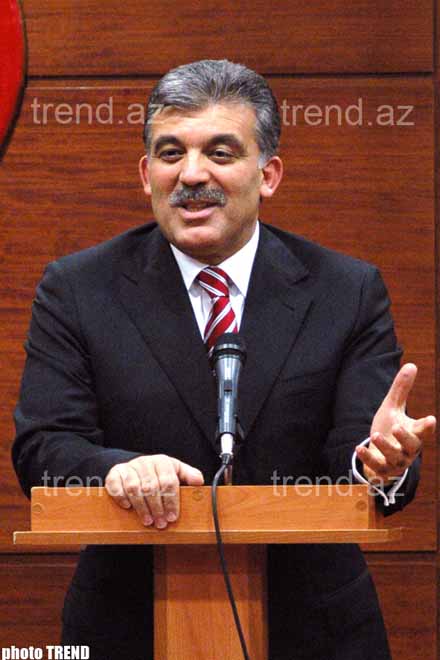Turkish President Abdullah Gul has said empathy is required to see underlying reasons why Iranians are determined to continue with their suspected nuclear program despite sanctions that badly damaged Iran's economy Todayszaman reported
"It is important to put oneself in their shoes and see how they [the Iranians] perceive threats," Gul told The Guardian, referring to Israel's nuclear capability, which it has neither acknowledged nor denied.
Gul's questioning of Iran's nuclear aspirations came a week after the International Atomic Energy Agency (IAEA) released its the most critical report on Iran's nuclear program, claiming that there are evidences that Iran might be on its way to develop a nuclear weapon capability.
Gul said there are different groups and concentrations of power in Iran and that it is impossible to see them as one single authority, without elaborating what elements he was referring to within the Iranian regime.
Turkey has spearheaded sustained efforts last year to revive nuclear diplomacy between Western nations and Iran and hosted a year ago talks regarding Iran's nuclear program in İstanbul. Turkey's efforts to bring Iran and Western powers together were at the expense of its image in the West and badly damaged its ties with the US.
Turkish president said for the sake of peace it is very important that the dialogue between Iran and the West progresses in a more frank and transparent way.
"When I say transparent I mean Iran, and when I say frank I mean the west," he said.
He added that Turkey is opposed to military options for dealing with the issue amid increasingly growing threats by Israeli officials that it could strike Iran's nuclear facilities if the Islamic republic does not relinquish its nuclear program.
"Looking at the Middle East, one has to have a comprehensive approach [to disarmament]," he added. "A piecemeal approach would not yield the same results."
Turkish Foreign Minister Ahmet Davutoglu said last week that Turkey is against nuclear weapons in the region. "We want a Middle East that is free of nuclear weapons. There are already enough tensions in the region. We believe Iran will behave responsibly," he said.
Syria is a dead end, change inevitable
Gul also spoke about eight-month unrest in Syria where at least 3,500 people were killed according to UN estimates. He said Syria is now at a dead end so change is inevitable. "But we don't believe the right way to create change is through external intervention. The people must make that change. Civil war is not something that anyone would want to see happen. Everything must be done to prevent it. It is very dangerous," he added.
Turkish president declined to directly comment on reports that Turkey is preparing to establish a buffer zone on the Syrian border to shelter civilians fleeing violence and anti-regime fighters, according to The Guardian.
He said establishing a buffer zone to shelter armed groups is out of the question but he said Turkey would continue to offer a democratic platform for Syrian opposition groups.
Gul said he was speaking to Syrian President Bashar al-Assad regularly until a few months ago and was advising him to allow free elections, release political prisoners and announce a clear timetable for reforms.
"It's quite too late for that sort of thing now," he said, adding that he seems to have opted for a different route. "And frankly we do not have any more trust in him."
Speaking about the Arab Spring, Turkish president said the awakening had happened with "something of a delay,'' and urged Arab leaders to follow Turkey's example.
Gul noted that there was a need for deep-rooted reform across the Arab world ruled by authoritarian regimes and that the rulers could not carry on as they were forever.
''In the end, it would either be the people or some sort of external interference that would bring change. Turkey now is a source of inspiration to many of these countries," Gul added






